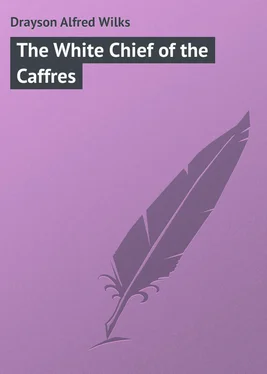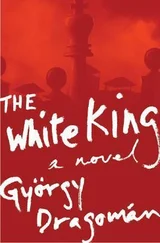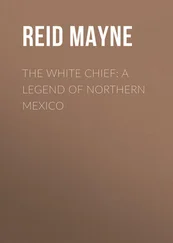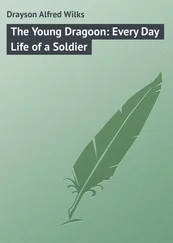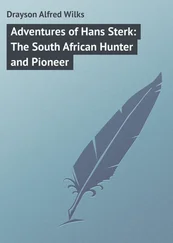Alfred Drayson - The White Chief of the Caffres
Здесь есть возможность читать онлайн «Alfred Drayson - The White Chief of the Caffres» — ознакомительный отрывок электронной книги совершенно бесплатно, а после прочтения отрывка купить полную версию. В некоторых случаях можно слушать аудио, скачать через торрент в формате fb2 и присутствует краткое содержание. Жанр: Прочие приключения, foreign_prose, на английском языке. Описание произведения, (предисловие) а так же отзывы посетителей доступны на портале библиотеки ЛибКат.
- Название:The White Chief of the Caffres
- Автор:
- Жанр:
- Год:неизвестен
- ISBN:нет данных
- Рейтинг книги:4 / 5. Голосов: 1
-
Избранное:Добавить в избранное
- Отзывы:
-
Ваша оценка:
- 80
- 1
- 2
- 3
- 4
- 5
The White Chief of the Caffres: краткое содержание, описание и аннотация
Предлагаем к чтению аннотацию, описание, краткое содержание или предисловие (зависит от того, что написал сам автор книги «The White Chief of the Caffres»). Если вы не нашли необходимую информацию о книге — напишите в комментариях, мы постараемся отыскать её.
The White Chief of the Caffres — читать онлайн ознакомительный отрывок
Ниже представлен текст книги, разбитый по страницам. Система сохранения места последней прочитанной страницы, позволяет с удобством читать онлайн бесплатно книгу «The White Chief of the Caffres», без необходимости каждый раз заново искать на чём Вы остановились. Поставьте закладку, и сможете в любой момент перейти на страницу, на которой закончили чтение.
Интервал:
Закладка:
It was not till I had been many months in this country and had learned the language that I heard all that had taken place on that eventful night; and it may aid the reader to better understand our position if I now describe those details which were afterwards so graphically described to me.
Our ship had been wrecked on the coast of South Africa, about midway between Natal and Algoa Bay, and not far from a river termed the Umzimvubu, Imvubu being the native name of the hippopotamus, several of which animals are inhabitants of this river. The natives in this part were a branch of the great Zulu nation, but independent of the Zulus. They were sometimes called the Amapondas, but they were more pleased to be called Amazimvubu. This tribe was ruled over by a chief called Inyati, or the Buffalo, and was strong enough to be feared by the Amakosa tribes to the west, and respected by the Zulus to the east. In their habits they resemble the Zulus, and were given to use the short stabbing assagy in preference to the light assagy used for throwing by the Amakosa. They lived in huts similar to those of the other South African Caffres, and were great cultivators of the soil, growing mealies or Indian corn, a smaller grain called m’beli, pumpkins, and sugar-cane. They were lovers of cattle, and a man’s riches consisted of herds of cattle and of wives.
I learned that the second day after we had been wrecked we had been discovered by these people, who had then set a watch on us; and it having been discovered that the men possessed firearms, and that there were women belonging to the party, it was decided that an attack should be made on the men during the night, and by surprise. Every detail of our camp was known to these people. By concealing themselves in the bush they had noted where each man lay down to sleep. Two Caffres had then been told off to assagy each individual, and to do it so quietly that no alarm should be given. Every plan was so well arranged that, at a given signal, each man had been stabbed dead at once, and his body carried away and thrown in the water. The females, it was known, slept under the canvas, and they were not to be touched. I, being always with them and having long curly hair, was supposed to be a little girl, and so was spared; and when it was known that I was not a girl, I was allowed to live as I was so young. All these details were described to me by a young Caffre who had been present at the massacre, and whose first adventure had been at this affair.
We had walked for some hours along narrow paths that sometimes led through bushes, at others over hills and down valleys, and at length reached a collection of huts, which I afterwards learned was named must , or, as the Dutch and English call it, a kraal. At this kraal several men, women, and children came out to look at us, all seeming much amused at our appearance, and especially astonished at the long hair of the ladies, for the Caffres have only short and woolly hair.
We were given some milk at this kraal, and I observed that the Caffre who had spoken to us when I first awoke seemed to be giving orders to all the men, and when they replied to him they often said “ Inkose .” I tried to make these people understand me by saying a few words in Hindostani, but they could not understand me and shook their heads. On my repeating to them the first word I learned, viz., Inkose , they nodded, and pointing to the large Caffre, said “ Yena Inkose ” This, I afterwards learnt, meant “He is the chief.”
We continued our journey during three days, resting at night in the kraals; and we saw thousands of Caffres, who were all alike, and who all seemed equally surprised at our appearance. At length we reached a kraal that was far larger than any we had hitherto seen, and on nearing which the Caffres came out in crowds and shouted “ Inkose ” and shook hands with all the men whom we had first seen. I and the three ladies were shown a hut, into which we had to crawl on our hands and knees: we then laid down, for we were all very tired and footsore. We were given some milk and some Indian corn boiled, but we saw no meat, these people apparently living entirely on corn and milk.
Mrs Apton and her daughter sat crying in the hut, and exclaiming that we should all be killed and probably eaten; but Constance seemed very brave and said that, considering how we had escaped from the wreck, we ought not to despair now. We all talked over our probable future, and tried to guess what had become of the men of the party. The Caffres had managed their slaughter so quietly that it was not till I could speak the language that we discovered what had happened to them. On the first night at this kraal the moon was full, and all the men belonging to this village and also those from several near it assembled, and, lighting a large fire, sat in a circle round it, and sang songs the whole night. We could not sleep in consequence of the noise, and we did not feel certain that we were not going to be killed and roasted at the fire, for we knew so little of the Caffres that we believed them to be cannibals.
It was just at daybreak when a Caffre came to the kraal and beckoned me to come out, saying “ E-zapa ” which meant “Come here.” Thinking I was to be taken out and roasted, I clung to Constance and cried; but the Caffre dragged me away, and led me to where there were some dozen men sitting apart and talking. When I was dragged to where they were sitting, I was made to sit down, and a long conversation took place, two men seeming to be arguing with each other: one was the Inkose who had captured us, the other I had never seen before.
Had I then known the subject that was being discussed between them, I should have been more frightened than I was, but luckily all was settled without my knowledge. When the men of our party had been assagied, the orders were to spare the females; and I was supposed to be a little girl, as I was always with the ladies. The Caffres, however, soon found out that I was a boy, and the question now was whether I should be assagied or allowed to live. The chief was in favour of my being allowed to live, and determined to take me as his adopted son; whilst another chief recommended that I should be put to death. It took some hours for the council to talk over the matter, but at length it was decided that I was to be allowed to live, and was at once to be brought up as a Caffre.
Chapter Three
Immediately the council broke up I was taken by the chief Inyati to a kraal about ten miles distant from that in which Mrs Apton and her daughter and Constance were stopping. I took a fancy to Inyati, and tried by signs and a few words which were a mixture of English and Hindostani, to ask him where I was being taken to. He seemed to understand my meaning, for he smiled, gave me a pat on the head, and gave me a knob-kerrie and an assagy to carry. Upon arriving at the kraal Inyati called out “Inyoni,” “Tembile,” and two Caffre boys about my own size came running towards him. Inyati spoke to them for some time, evidently about me, as he pointed to me often; the boys listened with great attention, and when he had finished, one of the boys repeated, apparently word for word, what he had been told. The chief nodded, and then walked away to one of the huts, whilst the boys put out each a hand and shook hands with me and beckoned me to follow them. They took me out about a mile from the kraal and towards a herd of cattle that were grazing on a hillside; we then sat down under the shade of a tree, and the boys commenced talking to me. I shook my head to show them I could not understand, and said, “Caffre humko malum ney,” which is the Hindostani for “I don’t know Caffre.” Somehow I thought that, as the boys were black, they would understand Hindostani better than they would English. They talked together for some time, and appeared very earnest in some argument. They then sat down beside me, and, pointing to the assagy that I still carried, said, “Umkonto.” I at once understood that they were going to teach me to speak Caffre, and being anxious to learn, I was much pleased at their intention. I repeated the word “umkonto,” which I now knew meant an assagy, until I said it just as they did. They then pointed to the cattle and said, “Incomo,” spreading out their hands so as to indicate all the herd. They then pointed at a chestnut-looking cow and said, “Imazi-e-bomvu,” then at a white cow and said, “Imazi-e-molope.” I learnt these words very quickly, and then, seeing a bird, I pointed at it, and looked inquiringly at my companions. They at once said, “Inyoni,” which I knew meant a bird, and one of the boys, pointing to himself, said, “Igama’s am Inyoni,” which I knew meant, “My name is Inyoni.” The boy then said, “Igama’s arko,” and pointed to me. I knew he was asking what my name was, so I said “Julius.” They both tried to repeat the word after me, but it seemed more difficult for them to say “Julius” than it was for me to repeat Caffre words after them. Being anxious to learn useful words, I made signs of eating, and then of drinking. The boys were wonderfully quick at understanding; and, pretending to eat, they said “ejla,” and then, pretending to drink, said “posa.” The sun was shining, so I pointed to it, and was at once told that it was “Ilanga.” The boys then patted their stomachs and drew them in as if they were empty, and said “Lambili, funa ejla”; this I understood meant, “Hungry, I want to eat.”
Читать дальшеИнтервал:
Закладка:
Похожие книги на «The White Chief of the Caffres»
Представляем Вашему вниманию похожие книги на «The White Chief of the Caffres» списком для выбора. Мы отобрали схожую по названию и смыслу литературу в надежде предоставить читателям больше вариантов отыскать новые, интересные, ещё непрочитанные произведения.
Обсуждение, отзывы о книге «The White Chief of the Caffres» и просто собственные мнения читателей. Оставьте ваши комментарии, напишите, что Вы думаете о произведении, его смысле или главных героях. Укажите что конкретно понравилось, а что нет, и почему Вы так считаете.
